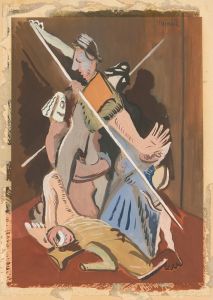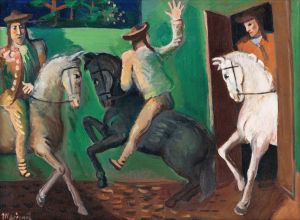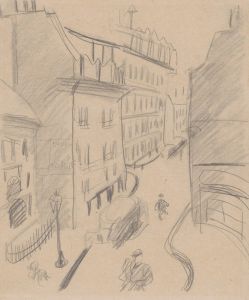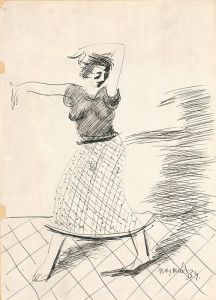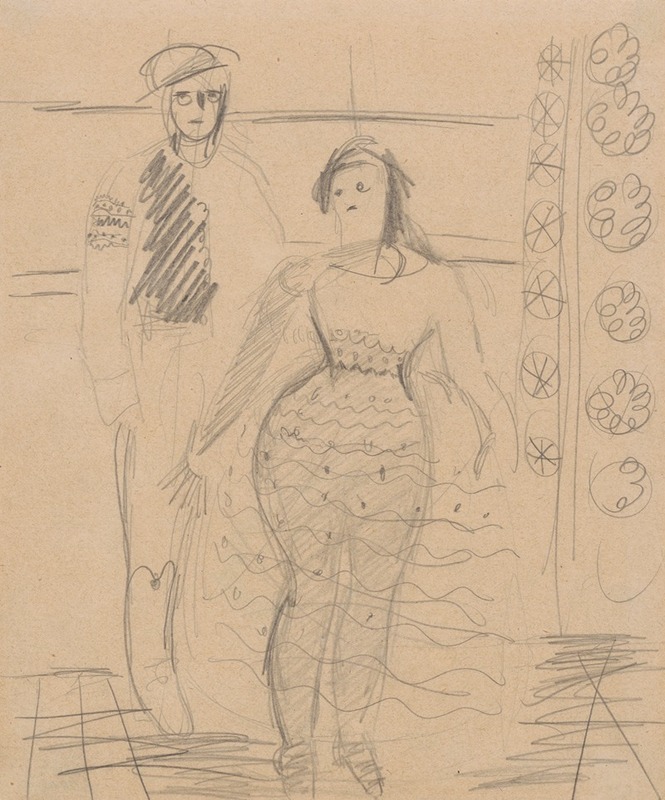
Skicár
A hand-painted replica of Cyprián Majerník’s masterpiece Skicár, meticulously crafted by professional artists to capture the true essence of the original. Each piece is created with museum-quality canvas and rare mineral pigments, carefully painted by experienced artists with delicate brushstrokes and rich, layered colors to perfectly recreate the texture of the original artwork. Unlike machine-printed reproductions, this hand-painted version brings the painting to life, infused with the artist’s emotions and skill in every stroke. Whether for personal collection or home decoration, it instantly elevates the artistic atmosphere of any space.
Cyprián Majerník was a Slovak painter known for his poignant and expressive works, often reflecting the socio-political turmoil of his time. Born in 1909 in Veľké Kostoľany, Slovakia, Majerník was part of the Central European art scene during a period marked by significant upheaval and change. He studied at the Academy of Fine Arts in Prague, where he was influenced by the prevailing trends of modernism and the avant-garde movements of the early 20th century.
One of Majerník's notable works is "Skicár," which translates to "Sketchbook" in English. This piece is emblematic of Majerník's style, which often combined elements of expressionism with a deeply personal narrative. His works frequently depicted themes of existential struggle, human suffering, and the absurdity of war, reflecting the broader anxieties of Europe during the interwar period and World War II.
Majerník's art is characterized by its emotional intensity and use of vivid colors, which he employed to convey the psychological depth of his subjects. His paintings often feature distorted figures and dreamlike landscapes, creating a sense of unease and introspection. This approach can be seen in "Skicár," where the use of line and form suggests a world that is both familiar and unsettling.
Throughout his career, Majerník was deeply affected by the political events of his time. The rise of fascism, the occupation of Czechoslovakia, and the horrors of World War II left an indelible mark on his work. His paintings from this period often reflect a sense of despair and disillusionment, yet they also convey a profound empathy for the human condition.
Despite the challenges he faced, including a battle with multiple sclerosis, Majerník continued to produce art that resonated with the struggles of his contemporaries. His work gained recognition for its ability to capture the spirit of an era marked by conflict and change. Majerník's contribution to Slovak and Central European art is significant, as he provided a unique perspective on the human experience during one of the most tumultuous periods in modern history.
"Skicár" and other works by Majerník are held in high regard for their artistic and historical value. They offer insight into the mind of an artist who was both a witness to and a commentator on the events of his time. Majerník's legacy is preserved in various collections and exhibitions, where his work continues to be studied and appreciated for its emotional depth and historical significance.
In summary, Cyprián Majerník's "Skicár" is a testament to his skill as an artist and his ability to convey complex emotions through his work. It stands as a powerful reminder of the impact of historical events on individual lives and the enduring power of art to express the inexpressible.





